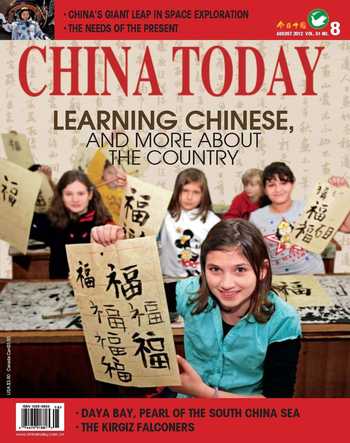Sci-tech
Quality and Productivity-deciding Rice Gene Identified
Chinese researchers have identified a key gene in rice of higher quality and productivity. Fu Xiangdong and his colleagues at the Chinese Academy of Sciences (CAS) first found the gene GW8 when studying basmati rice from Pakistan, which gives the rice its superior shape, color and taste. They later spotted a variant of GW8 in some types of high-yield rice grown in China. A further study led the team to another variant of GW8 that can enhance both rice quality and yield. Its dual merits have been supported by field experiments: when infused with Basmati rice it increases the output by 14 percent without lowering its quality. It could also be used to significantly increase the quality of high-yield rice in China without affecting productivity.
Minor Planets Named after Chinese Scientists
Five minor planets have been named after top Chinese scientists with the approval of the International Astronomical Union (IAU). Minor Planet No. 148081 was named after Sun Jiadong, a pioneer in artificial satellite and deep space exploration technology. No. 175718 was named after Wu Zhengyi, a botanist who has made great achievements in plant taxonomy, floristics and the study of plant resources. No. 18593 was named after Wang Zhongcheng. A renowned expert in microneurosurgery technology, Wang has developed new methods for treating tumors in the brain stem and spinal cord. No. 28468 was named after Shi Changxu, a leading scientist in the research and development of new materials. Finally, Minor Planet No. 43259 was named after Wang Zhenyi, who has developed creative clinical treatments for leukemia, especially the treatment of acute promyelocytic leukemia by all-trans retinoic acid.
China and Portugal to Boost Cooperation in Science and Technology
China and Portugal have signed a memorandum of understanding to further bilateral ties in science and technology. Chinas Minister of Science and Technology Wan Gang and Portugals Minister of Education, Higher Education and Science Nuno Crato signed the agreement on June 25. Cooperation in science and technology between the two countries has been steadily progressing since a scientific and technological cooperation agreement was signed in 1993. China hopes to strengthen cooperation with Portugal in clean energy, environmental protection, information technology, bio- technology and ocean development, as well as to increase exchanges between universities, young scientists and college students, Wan said at the signing ceremony. According to the memorandum, the two countries will set up an incubator to promote technology transfer and a joint working team to coordinate future cooperation.
Chinas New Weather Data Broadcast System Becomes operational
On June 1, CMACast, the satellite broadcasting system of the China Meteorological Administration (CMA), was put into formal operation, marking a new stage of meteorological data satellite broadcasting in China. CMACast integrates the former satellite broadcast systems of PCVSAT, DVB-S, and FENGYUNCast. With a bandwidth up to 36 MHz, the broadcast capability of CMACast is six times that of the three old systems put together. Besides regular meteorological data, the CMACast distributes Chinas weather radar data, satellite images, international meteorological data, videos such as on China Weather TV, and weather consultations done by the CMA, and all much more promptly than previous systems. Providing services for users in Asia and the Pacific, CMACast completes the global earth observation data broadcasting system together with Americas GEONETCast and Europes EUMETCast.

